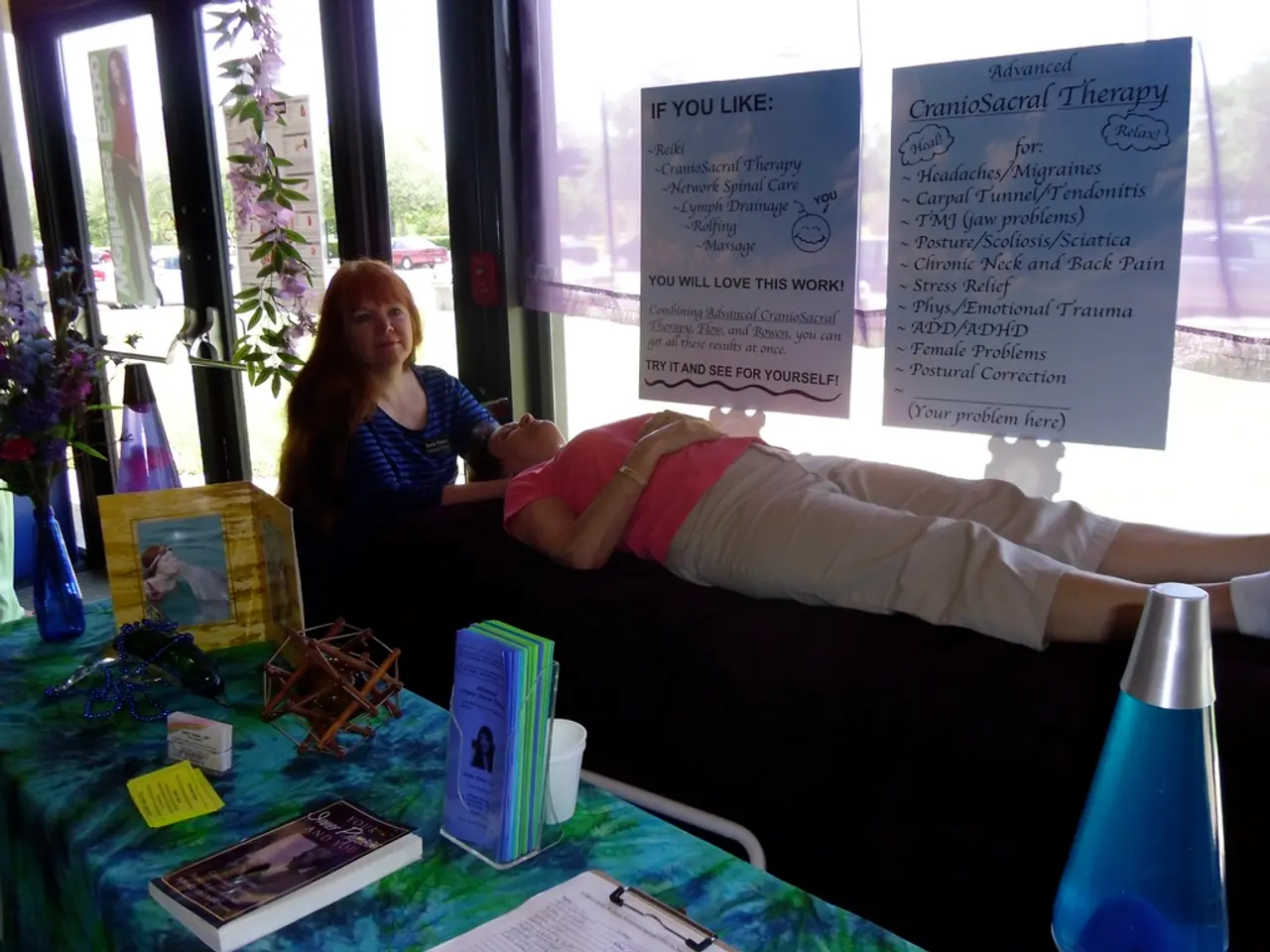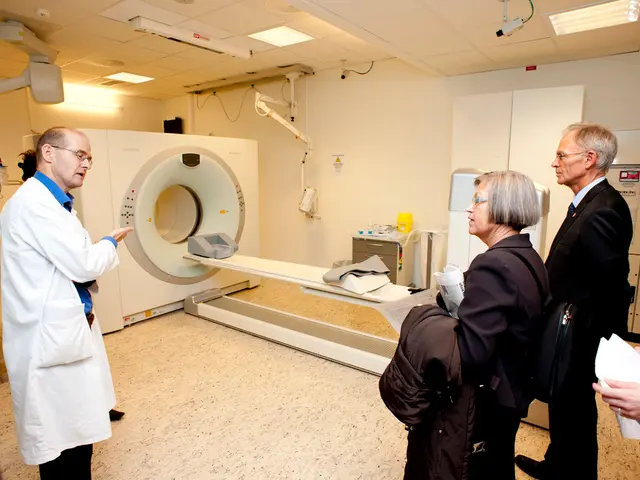Struggling with Depression? Here are 7 Physical Expressions to Combat It
Overcoming Depression with Body Language: A Comprehensive Approach
Body language plays a significant role in combating depression and anxiety, influencing mood and emotional states through physical posture and nonverbal cues. Adopting more open, confident, and upright postures can help regulate the nervous system, improve mood, and reduce feelings of anxiety and depression.
One such technique is the "slump buster," a simple routine that involves standing up straight, rolling shoulders back, planting feet, marching around one's space, and humming a tune. This practice, when performed regularly, can help kick away "body language depression" vibes and boost one's confidence.
Power posing, another method, involves rolling shoulders back, firmly planting feet, opening the chest, and keeping the head up. Researchers at the University of British Columbia have found that taking up expansive body language can increase feelings of confidence and competence.
Staring oneself down, sticking out one's tongue, and flashing the goofiest grin can also help rewire one's system. The Facial Feedback Hypothesis explains that making an expression can tap into emotional response, causing one to feel happier with prolonged smiling.
Physical activity is another essential component in combating depression. Exercise helps combat depression by pumping endorphins, making one feel happy and relaxed, decreasing anxiety, increasing concentration, focus, and cognitive abilities, and improving sleep. Even light exercise such as walking or stretching helps regulate the nervous system, elevating mood and reducing depressive symptoms.
Open and honest communication is key in understanding underlying emotions. Encouraging the person to express feelings, even difficult ones, helps therapists and support networks provide better care. The study of mirror neurons has helped us understand that we match the expression we see on people, making it crucial for supporters to use open and reassuring body language themselves to create a safe environment.
Professional treatment options, such as Transcranial Magnetic Stimulation (TMS), which targets brain areas involved in mood regulation with minimal side effects, can be recommended if traditional medications are insufficient.
Lastly, providing consistent support, patient and empathetic presence, combined with encouragement to engage in treatment (therapy or medication), helps maintain motivation for recovery.
In conclusion, integrating body language awareness with physical activity, open communication, professional treatment, and emotional support forms a comprehensive approach to aid those with depression or anxiety. By adopting positive body language, encouraging physical movement, promoting open communication, providing consistent support, facilitating therapy options, and modeling positive body language, we can help those struggling with mental health issues find a path towards recovery.
[1] https://www.ncbi.nlm.nih.gov/pmc/articles/PMC4485709/ [2] https://www.ncbi.nlm.nih.gov/pmc/articles/PMC5748520/ [3] https://www.ncbi.nlm.nih.gov/pmc/articles/PMC6376990/ [4] https://www.ncbi.nlm.nih.gov/pmc/articles/PMC6364847/ [5] https://www.ncbi.nlm.nih.gov/pmc/articles/PMC6376990/
- To complement the physical benefits of exercise in overcoming depression, regular practice of certain body language techniques, such as power posing and the "slump buster," can help boost confidence, reduce feelings of anxiety and depression, and positively influence one's mental health.
- The study of mirror neurons suggests that open and reassuring body language from supporters can create a safe environment and help individuals undergoing therapy better understand their underlying emotions, which is essential for effective mental health and wellness care.








